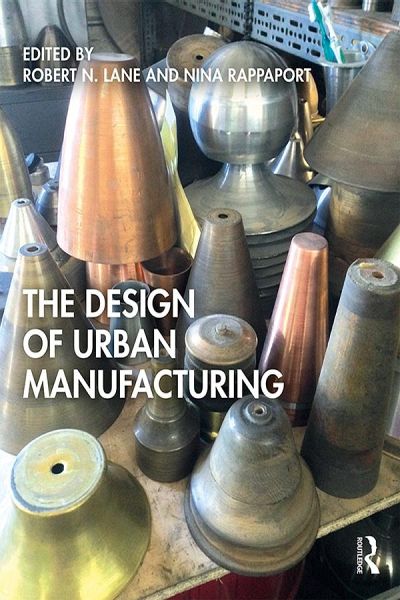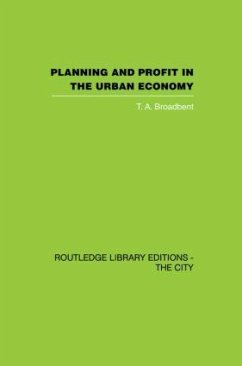
The Design of Urban Manufacturing
Versandkostenfrei!
Versandfertig in 1-2 Wochen
68,99 €
inkl. MwSt.

PAYBACK Punkte
34 °P sammeln!
American cities are rediscovering the economic and social value of urban manufacturing. However, urban manufacturing is often invisible and poorly understood in terms of urban design, architecture, and policy. The Design of Urban Manufacturing brings a multidisciplinary approach to a new complex reality that urban manufacturing now sits squarely at the intersection of research, education, and neighborhood revitalization. Using cases studies from across North America and beyond, this book presents innovative approaches not only to the design of districts and buildings, but to the design of poli...
American cities are rediscovering the economic and social value of urban manufacturing. However, urban manufacturing is often invisible and poorly understood in terms of urban design, architecture, and policy. The Design of Urban Manufacturing brings a multidisciplinary approach to a new complex reality that urban manufacturing now sits squarely at the intersection of research, education, and neighborhood revitalization. Using cases studies from across North America and beyond, this book presents innovative approaches not only to the design of districts and buildings, but to the design of policy as well: the special roles that governments, local development corporations, and not-for-profit organizations all have to play in supporting manufacturing. This book presents current models for working neighborhoods where factories enable fine-grained, mixed-use communities and face-to-face contact while creatively solving the very real problems of goods movement and functional buildings. Design guidelines and policy recommendations are calibrated to different types of production districts. The Design of Urban Manufacturing is the essential resource for policy makers, designers, and students in urban design, planning, and urban and economic development.












